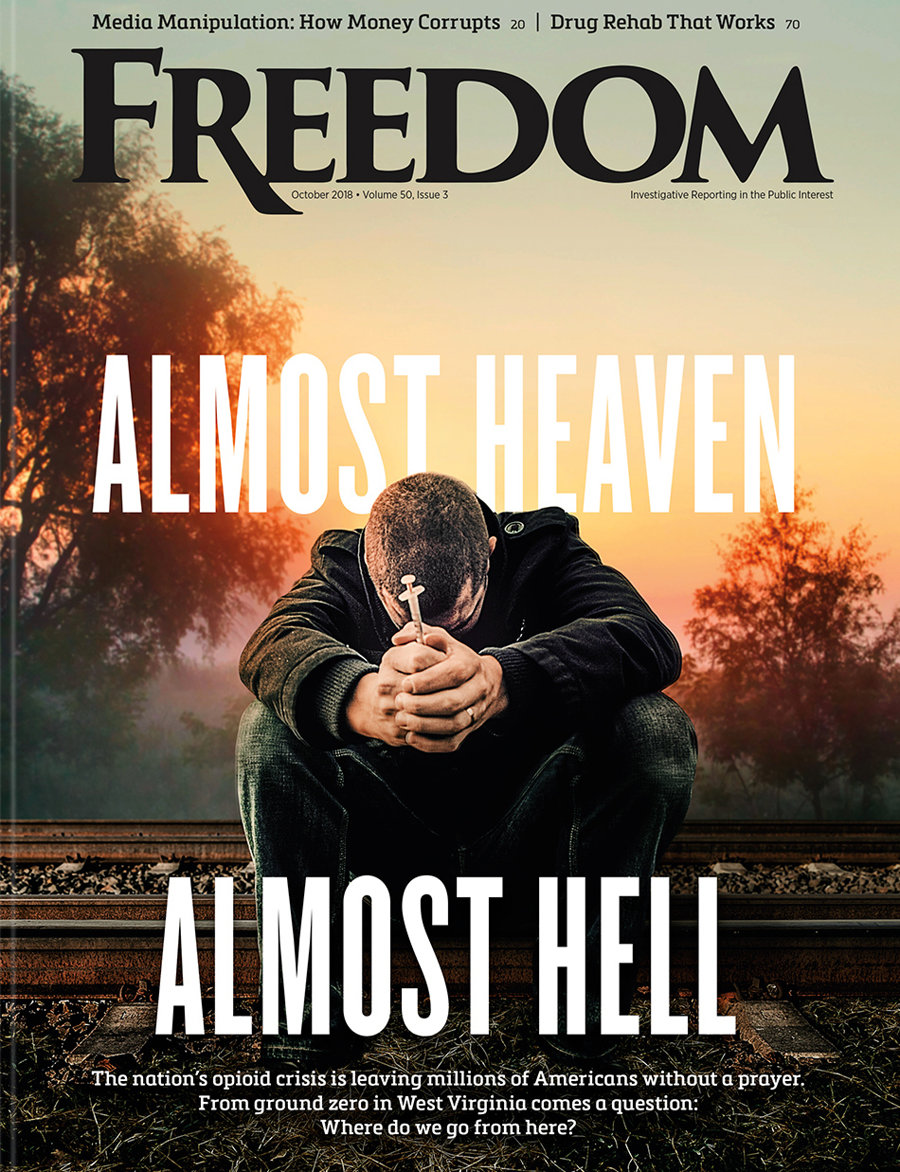At any moment, a Floridian can be taken into custody by police and involuntarily examined—even committed—under the state’s revised Baker and Marchman Acts.
Try to fight it, and the person may find himself handcuffed, tossed into the back of a squad car and dumped at a nearby mental health facility, where he’ll be thoroughly poked and prodded, drugged or restrained—all against his will.
And the billing meter is running from the moment he steps in the door.
House Bill 7021 streamlines the means by which a person can be held involuntarily for evaluation and possible “treatment”—with little say in what “treatment” he may be forced to endure.
The state already ridiculed with the “Florida Man” meme for its erratic behavior has therefore just taken a giant step backward in human rights, running against the tide of current international progress in corralling psychiatric abuse.
“Coercive practices negatively impact physical and mental health, often compounding a person’s existing condition.”
“The world is calling for an end to coercive mental health practices,” says Diane Stein, president of the Florida Chapter of Citizens Commission on Human Rights (CCHR). “It should be very difficult to take someone’s freedom and civil liberties away, but Florida is making it easier.”
Recent reports by both the World Health Organization and the Office of the UN High Commissioner on Human Rights call for an end to involuntary and coercive psychiatric “treatment.”
“Ending coercive practices in mental health—such as involuntary detention, forced treatment, seclusion and restraints—is essential in order to respect the right to make decisions about one’s own health care and treatment choices,” according to an October 2023 release from the World Health Organization. “Moreover, a growing body of evidence sets out how coercive practices negatively impact physical and mental health, often compounding a person’s existing condition.”
In direct contradiction, the Baker Act, originally passed in 1971, permits involuntary commitment of individuals based on their alleged mental instability. They must then be examined within 72 hours. Legal action can then be taken to extend their commitment if deemed necessary, with additional costs billed to insurance providers for the longer detention.
The Marchman Act, enacted in 1993, allows similar involuntary commitment specifically for those suffering from addiction—a five-day hold that can be extended for 60 or 90 days following a court assessment.
Controversy over both laws soon escalated as a result of myriad personal rights abuses and violations of parental rights. From 2019 to 2020, 202,600 Floridians were involuntarily examined for mental illness. Eighteen percent of those were children.
But the new legislation makes it all even easier. By providing more flexibility, consolidation and streamlining of legal proceedings, it opens wide the courtroom doors for a huge increase in involuntary commitment. It removes the previous 30-bed cap on certain treatment facilities, making room for even more involuntary admissions. And where the Baker Act originally required a person be observed visibly and immediately in need of institutionalization, practitioners are now allowed to take previous mental health or drug abuse history into consideration.
Roaya Tyson, CEO of Gracepoint Wellness, a local psychiatric facility that will benefit from the updated Baker Act, cheerfully describes the chilling new rules: “Before when practitioners were accessing somebody for an involuntary exam, they could only use what was in front of them at that very moment,” she says. “Now we are able to get some collateral information from family members and friends and people that were close that can tell us what kind of behaviors they’ve seen that are disturbing.”
But the World Health Organization states: “Coercive practices such as restraint and seclusion cause harm to physical and mental health and can lead to death.”
Jacksonville-based attorney Justin Drach, who works with CCHR Florida to gain release of victims of the Baker Act, describes what is really going on: “In every single county in Florida, there are people that are being held illegally in mental health facilities. They will keep people to fill the bed, because if the bed is filled, they’re going to get paid for that.
“We’re talking thousands of dollars to keep somebody in a cinder block facility, where they’re taken advantage of, violently injected with medications that they don’t want, even sexually assaulted.
“And the profitability is enormous.”






















